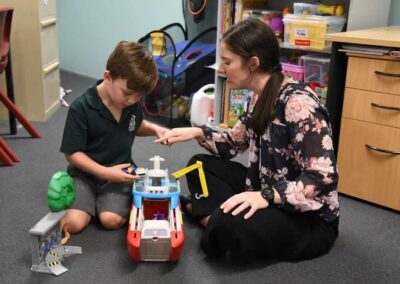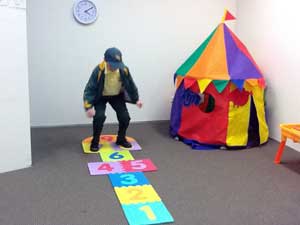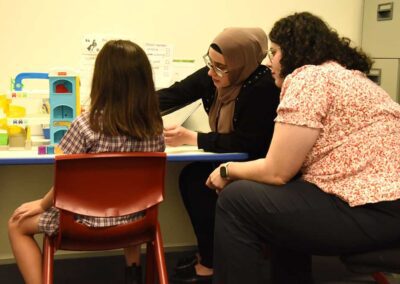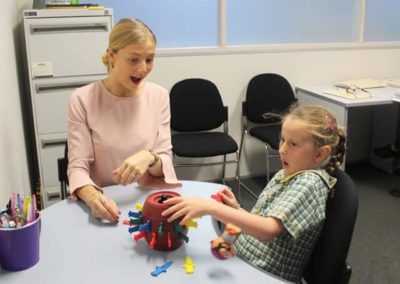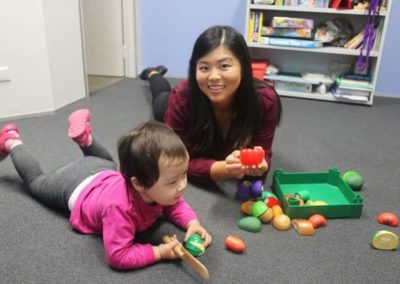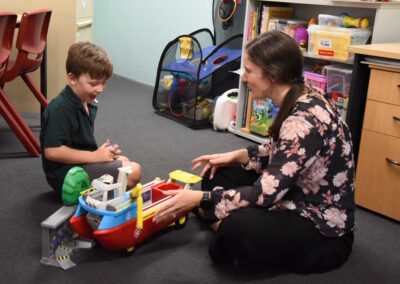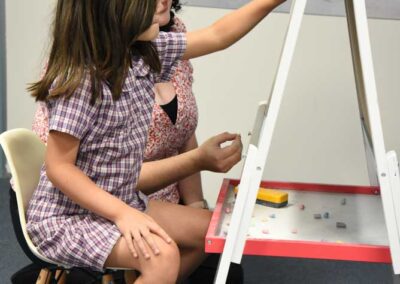 In a world that too often focuses on conformity and uniformity, it’s important that we celebrate differences and focus instead on the beauty that is found when we listen to neurodivergent people. Neurodiversity refers to the natural variation in the way some individuals think, learn, and process information, and the term ‘Neurodivergent’ includes a wide scope of neurotypes, such as autism, ADHD, dyslexia, OCD, and more. As parents, it’s essential to recognize and celebrate this diversity rather than looking at the deficits and difficulties. In this blog, we’ll explore the importance of neurodiversity-affirming care and how it can positively impact your child’s development and well-being.
In a world that too often focuses on conformity and uniformity, it’s important that we celebrate differences and focus instead on the beauty that is found when we listen to neurodivergent people. Neurodiversity refers to the natural variation in the way some individuals think, learn, and process information, and the term ‘Neurodivergent’ includes a wide scope of neurotypes, such as autism, ADHD, dyslexia, OCD, and more. As parents, it’s essential to recognize and celebrate this diversity rather than looking at the deficits and difficulties. In this blog, we’ll explore the importance of neurodiversity-affirming care and how it can positively impact your child’s development and well-being.
1. Understanding Neurodiversity:
Before diving into the importance of neurodiversity-affirming care, let’s first understand what neurodiversity means. Neurodiversity acknowledges that differences in brain function and behaviour are natural and valuable aspects of human diversity, and that instead of thinking of these differences as a disorder, we should instead look at the child’s strengths to encourage acceptance, inclusion, and accommodation.
2. Celebrating Neurodiversity:
Instead of focusing solely on “fixing” or “curing” neurodivergent traits, celebrate the unique strengths and perspectives that neurodiversity brings. Whether it’s creativity, attention to detail, or thinking out the box, every neurodivergent individual has something valuable to contribute to the world.
3. Fostering Acceptance and Inclusion:
Embracing neurodiversity starts with creating acceptance and inclusion within the family and community environment. As parents, you play a pivotal role in establishing an environment where your child feels valued and accepted for who they are. This involves embracing their strengths and challenges without judgment and providing the support that they need. You may also like to provide some materials children can explore in their own time that show neurotypes that are like, or different, to their own. We suggest The Brain Forest and The Rainbow Brain by Sandhya Menon, Love me Love my ADHD by Chrissie Davies, A Day With No Words by Tiffany Hammond, and My Brother Otto by Meg Raby as a great start to your collection.
4. Shifting Perspectives:
One of the most significant challenges in embracing neurodiversity is changing how society views these individuals and dispelling myths and stereotypes. By educating yourself and others about neurodiversity, you can challenge misconceptions and promote a more inclusive and understanding society. There are many podcasts and books available if you would like to explore further. We suggest Different Not Less by Chloe Hayden, Kay Kerr’s Love and Autism, and the Exploring Neurodiversity and Yellow Ladybugs podcasts.
5. Empowering Self-Advocacy:
Affirming neurodiversity also involves empowering your child to advocate for themselves and their needs. Encourage open communication and provide opportunities for them to express their thoughts, feelings, and preferences, and ask any questions they may have about themselves and others. By fostering self-awareness and self-advocacy skills, you help your child navigate the world with confidence and resilience. This may include telling a teacher when they need a movement break or wearing earphones when going to a noisy shopping centre. There is a confidence in your child being able to proudly declare their neurodivergence, not as an excuse but an explanation that will allow them to understand themselves and interact with the world in a more meaningful way.
6. Building Support Networks:
Building a supportive network of other neurodiverse families and allies can provide invaluable support and resources. Whether it’s through support groups, online communities, or advocacy organisations, connecting with others who share similar experiences can help you feel less alone and more empowered in your journey. Facebook has many support groups for immediate online discussions, like Autistic Not Weird, Autism Inclusivity, and the I CAN Network.
7. Seeking Neurodiversity-Affirming Professionals:
Lastly, when seeking support services or therapy for your child, prioritise professionals who embrace a neurodiversity-affirming approach. These professionals recognise and respect the individuality of each child and work collaboratively with families to provide holistic and inclusive care. Here at Speak, Learn and Grow we wholeheartedly believe in the viewpoint of ‘Difference not Disorder’, and would love to work with you and your family on interventions that are individualised and empowering. 
In a neurodiversity-affirming approach to speech pathology sessions, our focus is not on “fixing” or “normalizing” behaviours, but rather on understanding and respecting the meaning behind the behaviours and embracing the individuality of each child, considering their unique needs, preferences, strengths, challenges, and communication style. Our speech pathologists create a safe and supportive environment where our clients can feel heard and supported and look at building connection rather than compliance. Activities are designed to be engaging and meaningful, incorporating the child’s interests and strengths. Through collaborative goal setting and feedback, every child is empowered to take an active role in their learning journey, which encourages self-expression and self-advocacy, allowing them to develop confidence and resilience.
Conclusion
Embracing neurodiversity-affirming care is essential for promoting the well-being and development of neurodivergent children. By fostering acceptance, shifting perspectives, empowering self-advocacy, celebrating differences, and seeking supportive networks and professionals, we can work together in creating a nurturing environment where your child can thrive and fulfill their potential. Together, let’s celebrate the beautiful tapestry of neurodiversity and create a more inclusive and understanding world for all.



